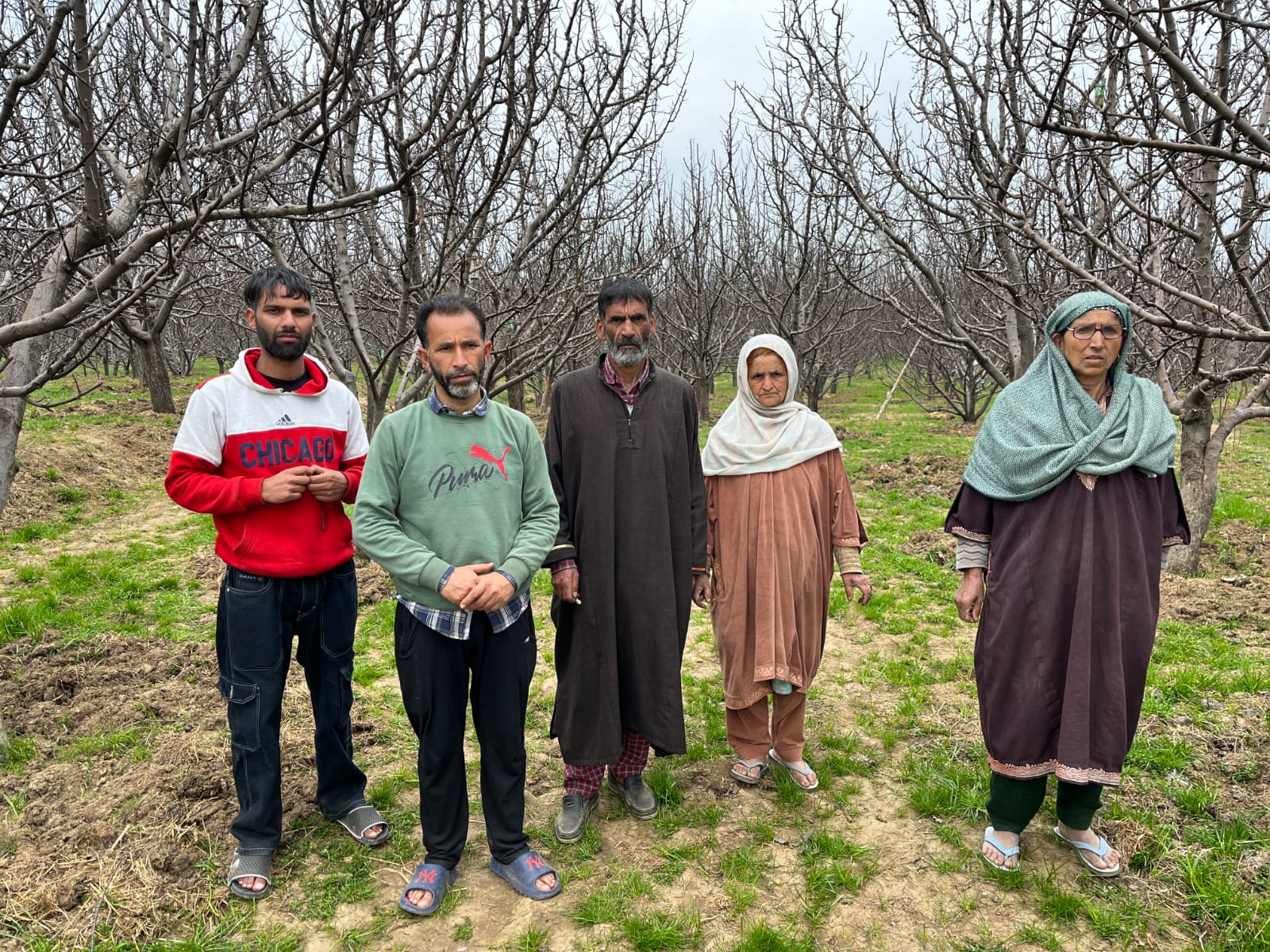In a fervent display of unity, residents of Reshipora in Zainapora, Shopian are up in arms and have taken to the streets to oppose a proposed railway line that would threaten their apple orchards which is the backbone of the economy of that area. The residents of Shopian feel a shadow of apprehension as their livelihood depends on their orchards. The entire village is in deep trauma after the authorities started to demarcate the land for the extension of the railway line.
Voices of Shopian villagers: threat to livelihoods and identity
Muzafar Ah Malik, a resident of Reshipora, conveyed a sense of urgency as he articulated the profound impact of the proposed railway line on his livelihood. With over four kanals of land under his care, yielding a bountiful harvest of 1000 boxes of apples annually, his orchards were not just a means of sustenance but a lifeline for his family and community.
Muzafar Ah Malik, a resident of Reshipora, conveyed a sense of urgency as he articulated the profound impact of the proposed railway line on his livelihood.
‘Our very survival hinges on these orchards,’ he emphasised, his words weighing with the gravity of their predicament. ‘For generations, we have tended to these trees, nurturing them with care and dedication. They are not just a source of income; they are a part of our identity, woven into the fabric of our existence.’

The thought of losing these orchards was akin to losing a piece of themselves, a sentiment echoed by many who shared his plight. ‘If the authorities refuse to heed our plea and persist with their plans, he lamented we will be left with nothing, no means to provide for our families, no connection to our roots.’ His plea was a poignant reminder of the profound connection between land, livelihood, and identity, and the devastating consequences of its loss.
The picturesque village of Reshipora Zainapora is renowned for its lush green orchards which have sustained generations of families. Kashmir’s economy mostly depends on farming, animal husbandry and horticulture, horticulture being the only sector which contributes immensely to strengthen the financial condition of the state. Shopian, being the apple town of Kashmir, is one of the biggest apple producers.
Shopian, being the apple town of Kashmir, is one of the biggest apple producers.
Ghulam Mohd Reshi, a distressed resident of Reshipora, spoke with a heavy heart about the dire consequences facing his family due to the proposed railway project. With two sons and four daughters to care for, he detailed how their entire livelihood rested upon their apple orchard, spanning three-kanals of precious land. ‘Our apple orchard is not just our livelihood, it’s our lifeline,’ he explained, his voice strained with worry. ‘We’ve poured our blood, sweat, and tears into nurturing these trees, relying on them to provide for our family’s needs.’ However, the looming threat of the railway line cast a dark shadow over their future. ‘If the government proceeds with this project, it won’t just rob us of our means of survival, it will render us homeless,’ he lamented, his words tinged with desperation. ‘Without our orchard, we’ll have nowhere to turn, no roof over our heads.’
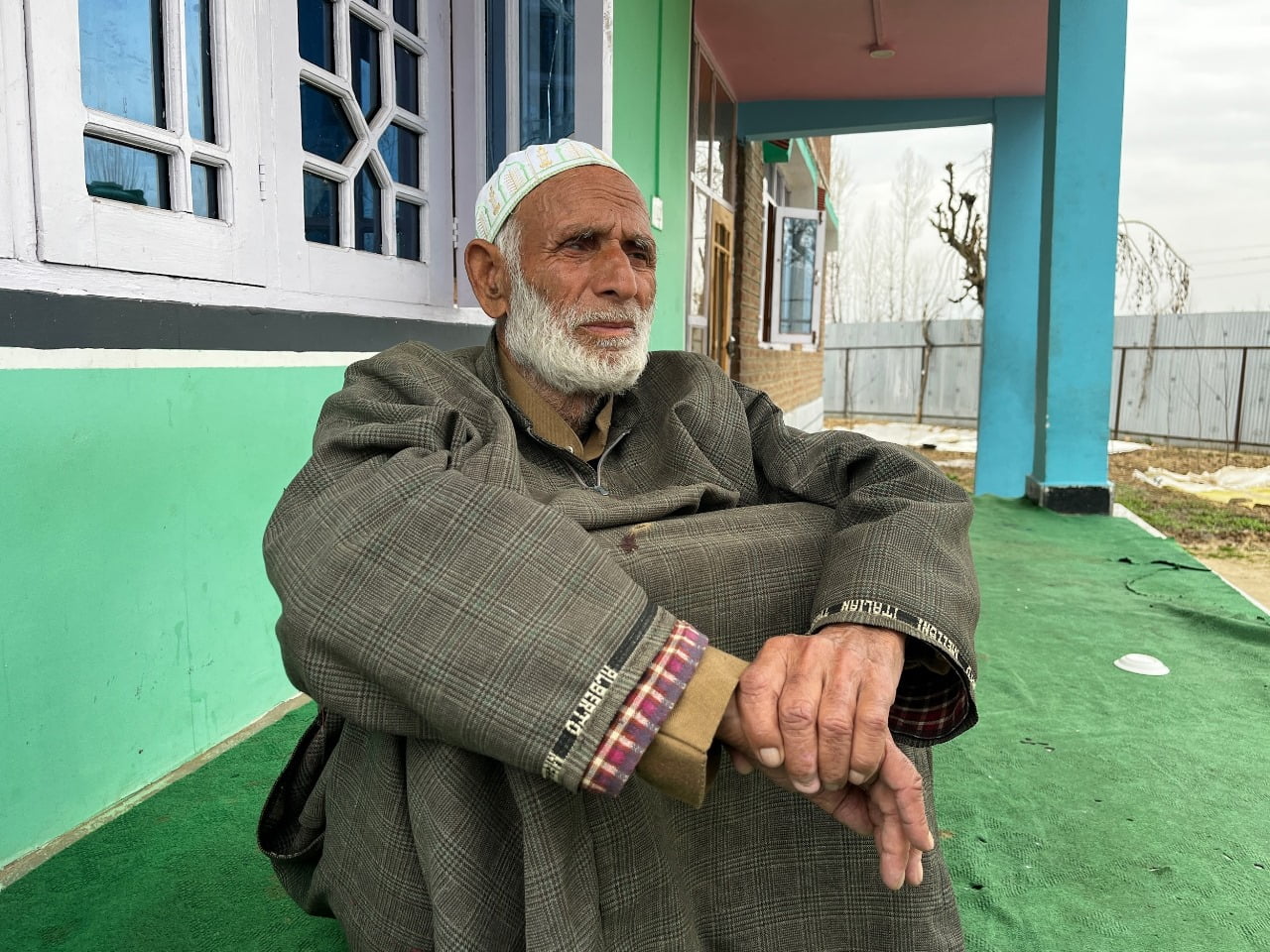
The gravity of their predicament weighed heavily on him as he contemplated the unthinkable. ‘If there’s no reconsideration, if our pleas fall on deaf ears, we’ll be left with no choice but to contemplate the unimaginable’ he confessed, his voice trembling with anguish. ‘Suicide will seem like the only escape from the hopelessness and despair that await us.’
His words served as a stark reminder of the human toll exacted by decisions made without consideration for the lives and livelihoods of those most affected.
Khatiji Begum, another resident of Reshipora, was visibly distraught as she poured her heart out to FII.
Khatiji Begum, another resident of Reshipora, was visibly distraught as she poured her heart out to FII. Through tearful eyes, she recounted the pain of losing her husband fifteen years ago, leaving her to single-handedly raise their two sons amidst the lush apple orchards they called home. Now, faced with the looming threat of these apple trees being cut down to make way for a railway line, her anguish was palpable. ‘What would I do if they cut these trees down?’ she pleaded, her voice trembling with fear and desperation. ‘Where would we go? We have depended on these orchards for our livelihood, for our very survival. If they take this away from us, we will be left with nothing but a begging bowl. We will have no choice but to wander the streets, destitute and helpless.’
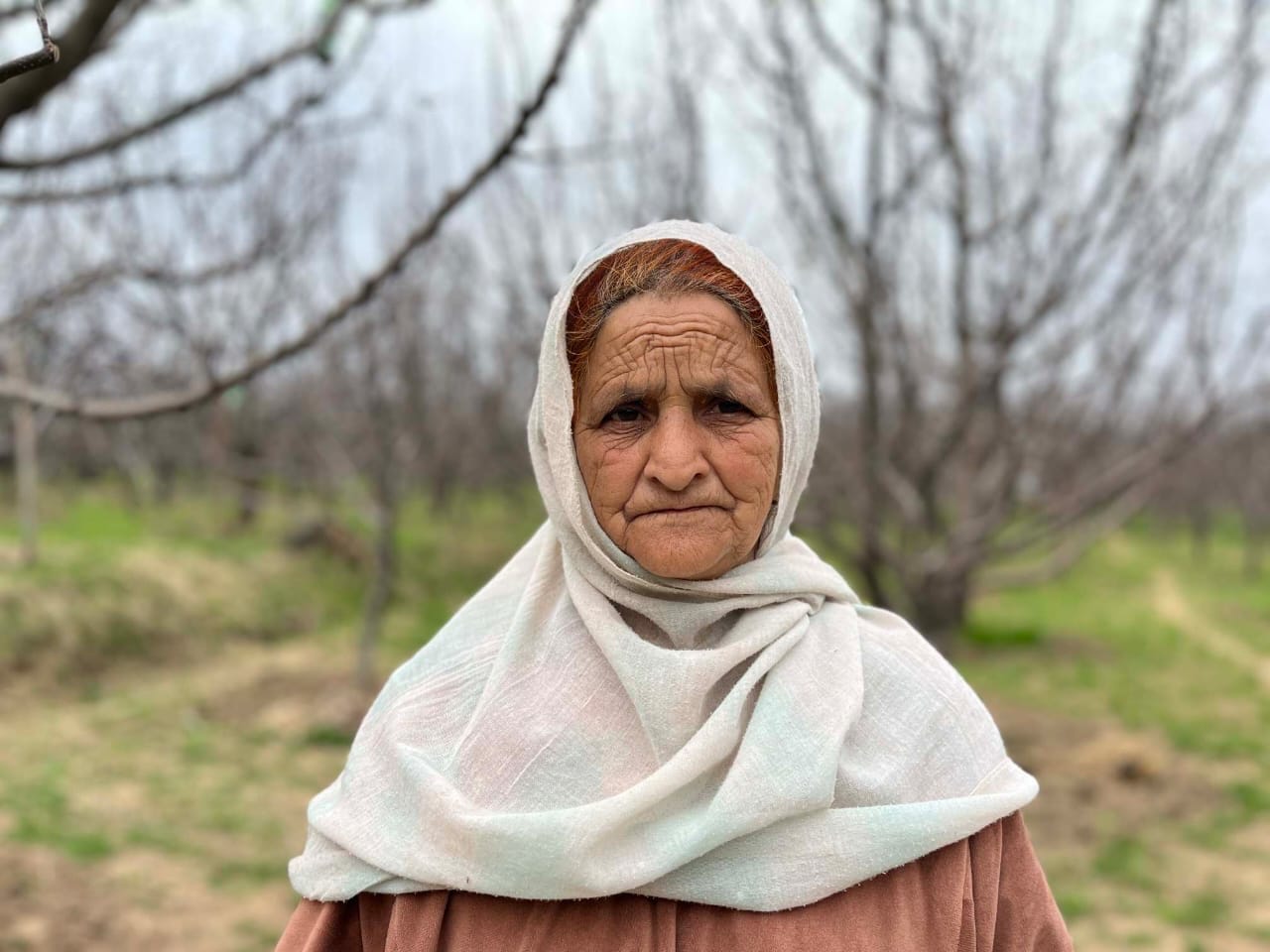
The thought of such a fate brought her to tears, her sorrow echoing the sentiments of an entire village on the brink of upheaval. ‘We will give our life, but we will not endure this cruel decision,’ she declared with unwavering resolve. ‘Our survival is at stake, and we cannot stand idly by as our home, our heritage, is torn apart.’ Her words were a poignant plea for mercy, a cry for justice in the face of impending adversity.
Govt sanctions railway projects amidst resistance by villagers
However, the proposed 27.6km long railway line from Awantipora to Shopian, which goes through various villages including the village of Reshipora, is intended to enhance connectivity and development but poses a grave threat to the locals of this village as their houses and orchards will be removed If implemented, it would cut through vast swathes of orchards, jeopardising the livelihoods of countless families and irreversibly altering the landscape
Bureaucracy’s perspective: development vs local concern
The additional deputy commissioner of Zainapora, in a conversation with FII, said that any project which is sanctioned by the government is intended for developmental purposes. However when pressed about the tangible repercussions for farmers dependent on these orchards, he acknowledged the limitations of the authority by responding that he is not vested with the power to unilaterally halt the project and said that he will talk to the Deputy Commissioner of Shopain about the issue.
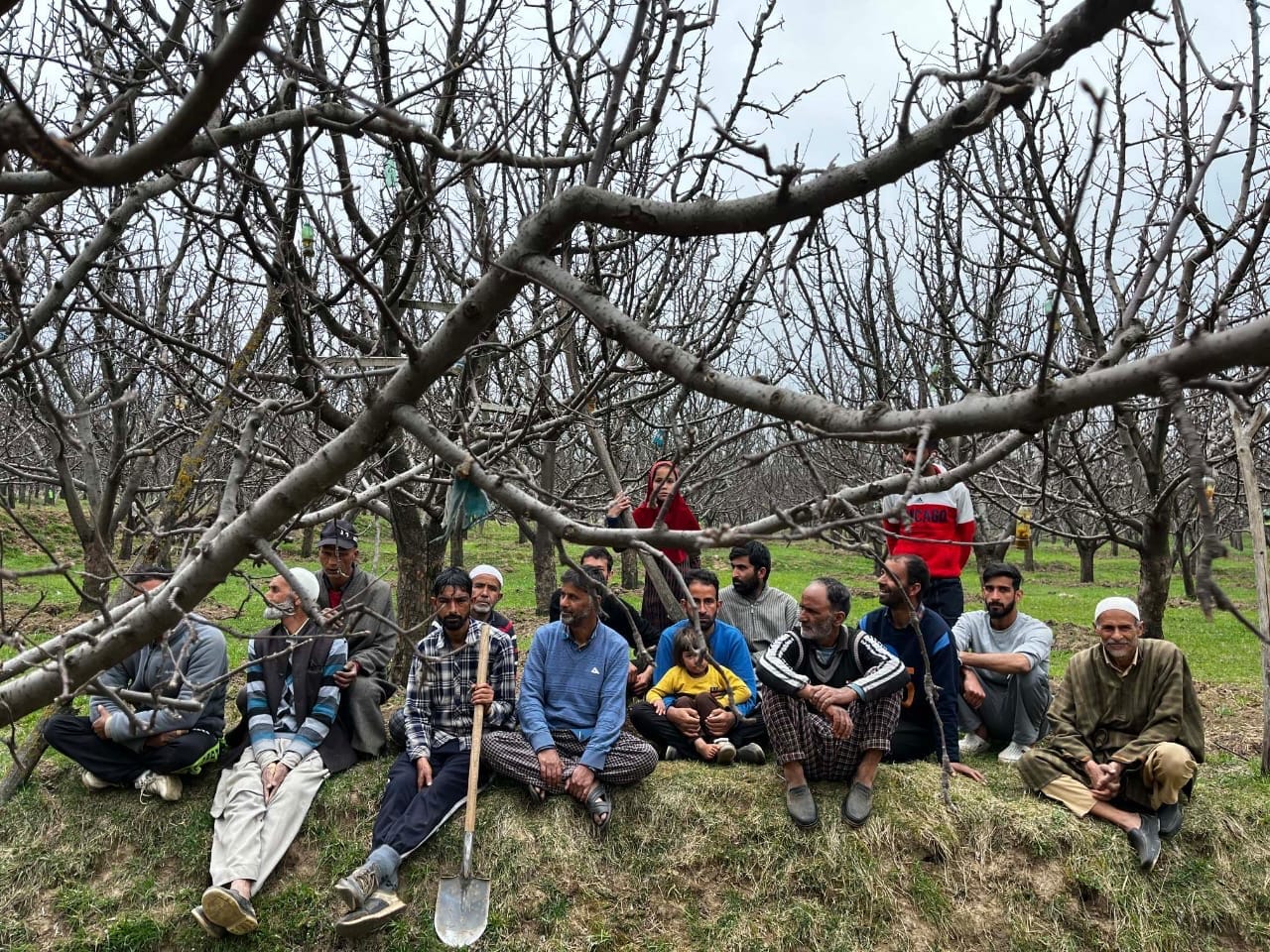
The Deputy Commissioner of Shopian, Faz Lul Haseeb, said that the issue has been brought under their notice and it will be discussed with the higher officials.
Local mobilisation and protests
In response to the looming threat, villagers have mobilised in a show of resistance. Holding placards and raising slogans, they have staged protests, pleading with authorities to reconsider the project’s alignment or find alternative routes that do not disrupt their orchards.
The Ministry of Railway sanctioned the final location survey of five lines, including the doubling of the Baramulla-Banihal section to 135.5km, Baramulla-Uri to 50 Km, Sopore-Kupwara to 33.7 Km, Awantipora-Shopian to 27.6 Km, and Anantnag-Bijbehara-Pahalgam to 77.5 Km.
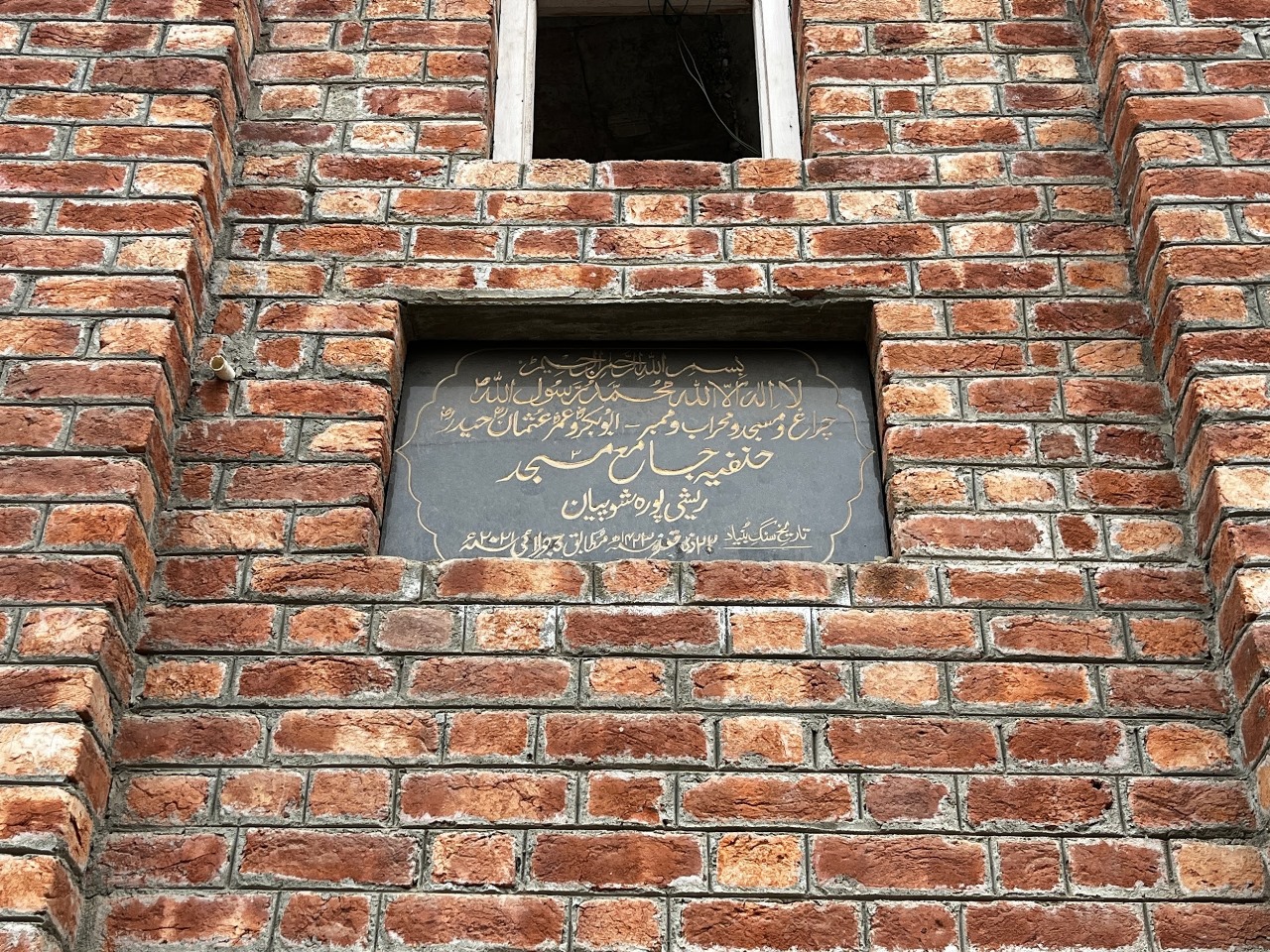
The villagers emphasise that while they recognise the importance of development projects, they cannot afford to sacrifice their primary source of income and cultural heritage in the process.
Political support and advocacy: local leaders support villagers cause
Local leaders including former Chief Minister Mehbooba Mufti and Omar Abdullah have pledged their support to the cause, vowing to amplify the villagers’ voices and advocate for their rights. They have urged the government to engage in meaningful dialogue with the villagers to find a mutually beneficial solution.
Former Chief Minister Mehbooba Mufti while taking to the X formerly Twitter ‘Building railway lines through Kashmir without taking into consideration its ecological impact is fraught with dire consequences. In this case the proposed railway line will necessitate the felling of apple orchards at Shopian’ she further requested the Lt.Governor of Kashmir Manoj Sinha to involve a panel of environmental experts before taking such major decisions.
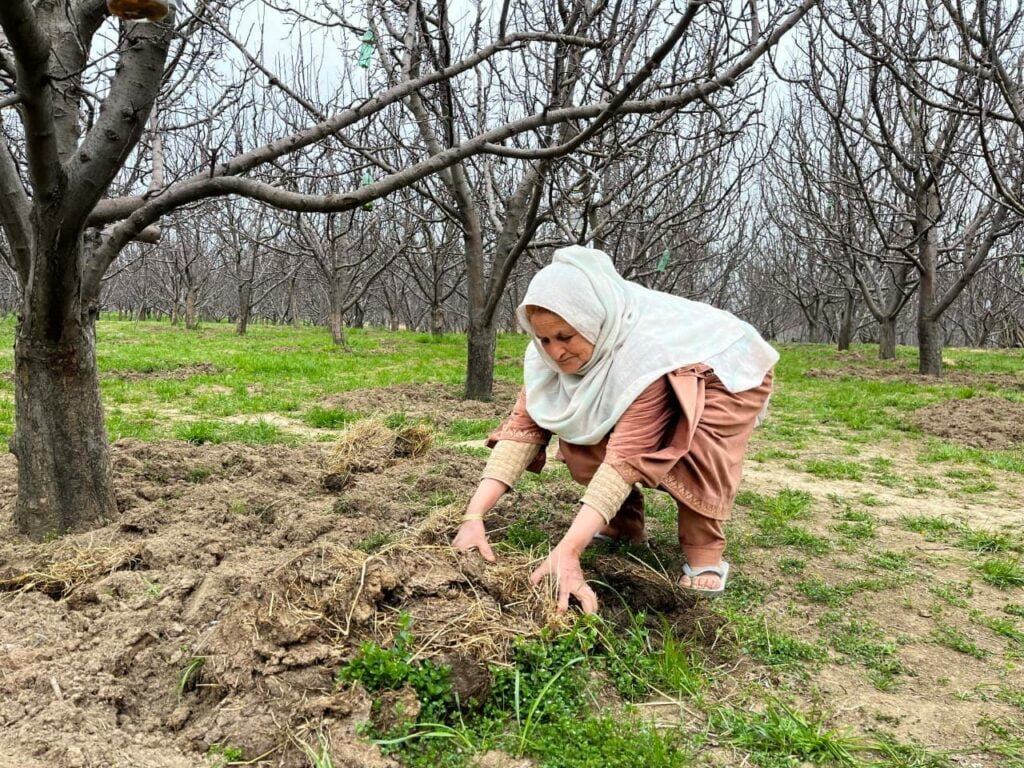
BJP’s district Ravender Raina, recognising the gravity of the concerns, has assured the delegation led by the head of Reshipora village that their woes will be looked after, he affirmed and assured that their voices would not go unheard, and he will take this issue personally to the higher ups.
Uncertain fate of Shopian’s orchards
As tensions escalate and uncertainty looms, the fate of Reshipora’s orchards hangs in the balance. Will the government heed the impassioned pleas of the villagers and chart a course that preserves their way of life? Only time will tell as the villagers stand united in their fight to protect what is dear to them.
